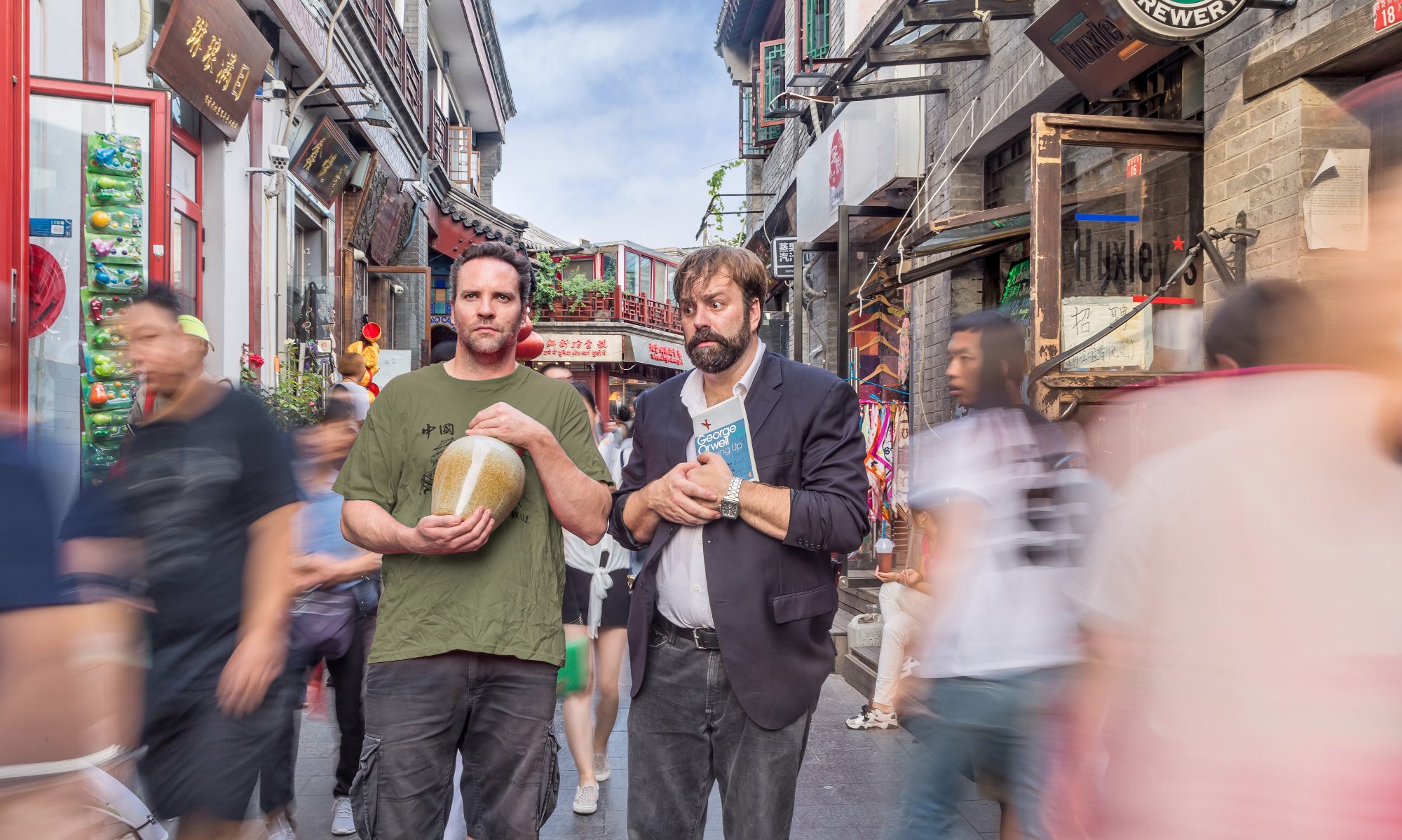
By Joe Henley
Getting a sitcom up and running is a special sort of hell. Convincing TV industry power mongers to pay attention is akin to standing along a stretch of highway and yelling at the cars that whip by. Oh, and there are about a million people alongside you, all braying ad nauseam about how they’ve got the next Friends on their hands. In short, it’s next to impossible.
Actor, writer and producer Murray Clive Walker is on the verge of making the impossible happen. The South African thirty-something has not only gone through all of the above to breathe life into his pet project, he’s had to do it while navigating the cultural complexities of a foreign land—namely China.
The result is WOK IN PROGRESS, a bilingual sitcom following two college dropouts who try, and mostly fail, to bridge various cultural gaps in Beijing. In the self-produced and financed pilot episode Walker plays Larry, a skirt-chasing dreamer fresh out of his studies in the U.S. His comic foil is the level-headed Melvin, played by Scotty Cox.
In real life, Walker spent three years in Taiwan working and studying Mandarin the mid-aughts before upping stakes for the Middle Kingdom. Prior to living in Taiwan, he studied acting in Vancouver and New York.
While living in Taipei, Walker worked a desk job as a writer and editor at a publishing company that made ESL materials. It was there that the idea to write a sitcom struck.
“They were using a sitcom-type show as part of their English instruction,” Walker recalls. “I tried getting a role in that, but they already had enough actors. But the editor told me they were looking for a lower level English show which I could take a crack at writing. And so I started creating a sitcom for the first time.”
That show was never made, but the idea had a hold of him. His love for the city notwithstanding, Walker knew he would have to leave Taipei in order to fully pursue his dreams of writing and acting.
“I love Taipei more than Beijing actually, but the industry was just too small. I needed the next big thing in my life and so I made the move to Beijing.”
Upon arrival in the Chinese capitol, Walker was poised to fall into the usual western-expat-in-Asia McJob. Then the first in a series of serendipitous meetings occurred.
“I was about to start teaching English again when I met an Australian guy in a coffee shop. He was running lines for an independent movie and he gave me the number of his agent. I met with her and a month later, just as I was being hired to teach English, I got my first acting job on a Chinese TV show called Zhuangshi Chuzheng (壮士出征).”
Since that chance encounter eight years ago, Walker has acted in over 30 TV shows and eight movies. He even landed a role opposite action star Dolph Lundgren once, with Drago himself wrapping his fingers around his neck despite the script not calling for it.
By Walker’s own account, trying to break out as a foreign actor in China hasn’t been easy, but he has been able to make a steady go of it. Now, rather than wait for roles to find him, he’s trying his hand once more at writing his own.
Nobody gets by in the entertainment industry without help, though. To get Wok in Progress made, Walker needed someone with a bit of industry clout on his team. Cue the second entrance of fate into the picture.
“Funnily enough, I met Victor Muh (慕全胜), co-producer and director, at a speed-dating event. Although neither of us found girlfriends that night, we did instead sow the seeds for an awesome friendship and partnership. I showed him the pilot and we got to work putting the different pieces together. Victor and I pulled in our resources in order to make the pilot happen.”
Walker and Muh are now in the final stages of a Kickstarter campaign, attempting to raise the US$30,000 they need to film the first season. With just a few days to go, they have recently passed the halfway point of their goal. It’s all or nothing. If the thirty grand doesn’t come in by Monday night (China Standard Time), they are back to square one.
In the end, Wok In Progress is a work of comedy. But that doesn’t make it any less meaningful, nor the message any less poignant.
“We wanted to create a sitcom that would address these cultural discrepancies,” says Walker, “but also convey the idea that although culture is important, sharing the same culture is not paramount to getting along with each other. Yes, we are all different, but it’s these differences that make us interesting and unique.”
